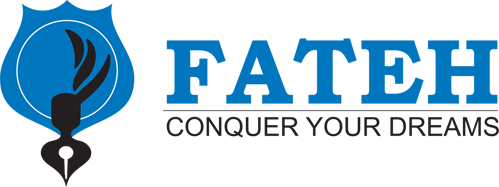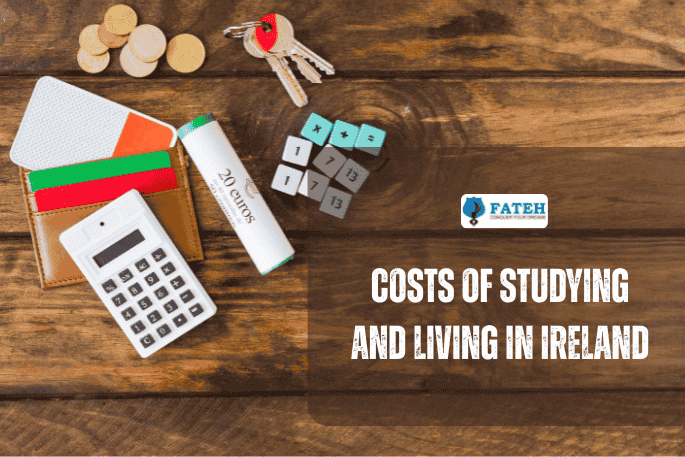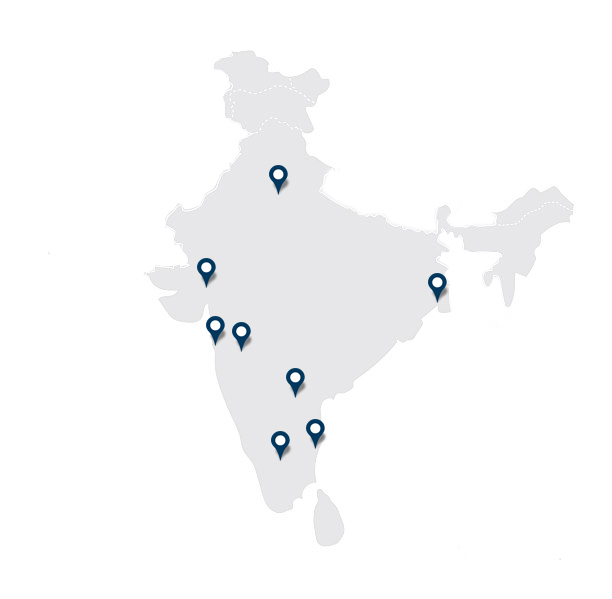Introduction
As a student who is ready to embark on your academic journey in the Emerald Isle, one question is bound to cross your mind: what’s the cost of living in Ireland, really? This is particularly important if you’re planning to pursue high demand courses in Ireland that can lead to excellent career opportunities.
From the vibrant city life in Dublin to the more laid-back pace of towns like Galway or Cork, the experience of living in Ireland is diverse, enriching, and increasingly sought after. But with that dream comes the practical side of things: How much will your rent be? What will you spend on food, utilities, and transportation? Are there ways to save money without compromising your lifestyle? And what about the cost of enjoying what Ireland offers, including its rich culture, scenic beauty, and occasional social outings?
While Ireland is globally recognised for its world-class universities, innovation-driven job market, and unmatched quality of life, it’s also a country where the currency differs from ours and, in some respects, can be expensive. But don’t let that deter you. With a bit of planning and smart budgeting, living in Ireland can be both fulfilling and manageable, no matter your background or goals.
In this guide, we’ll break down what real-life expenses look like, including rent, groceries, travel, entertainment, study materials, and phone bills, and give you a comprehensive, realistic, and helpful picture of what to expect financially as you settle into life in Ireland, especially if you’re planning to attend top universities in Ireland.
Accommodation Costs in Ireland
The cost of accommodation in overseas nations can be higher for foreign students. Still, when you compare Ireland with other European nations, it provides you with way more options to choose from based on your pocket. This means that while Dublin is expensive, you can opt to study and live in cities outside of it, such as Cork and Galway, which are comparatively cheaper in terms of rent, making these destinations more affordable. Also, if you share an apartment, the fact that the rent will be shared might make it lighter on your pocket compared to independent housing options. For those aiming to stay in top cities during their sojourn, the cost of an apartment can be anywhere between €1200 and €1500 per month, and in the suburban areas, this amount will be approximately €800–€1000. The utility bills and maintenance charges are going to be extra. However, if you are looking at securing an on-campus boarding, you can expect to pay as mentioned in the table below:
| Accommodation Type | Monthly University Accommodation |
|---|---|
| Dublin Universities | €1,000 to €3,000 |
| Universities Outside Dublin | €700 to €1,200 |
Food Costs in Ireland
Cooking at home is invariably more economical and tailored to your preferences, whereas dining out incurs a higher expense. Some students dine out on weekdays due to time constraints, while others prepare home-cooked meals on weekends to accommodate their weekly meal plans according to personal preferences and budgetary considerations. Additionally, several students dine out on the weekends specifically to socialise over coffee or lunch with friends, reconnect, and explore the city. Therefore, the average cost of food within a week for an international student fall between €70 and €100, which is entirely flexible given your food habits and preferences.
Also, occasionally if you do crave authentic Indian food, you can access good Indian restaurants in Ireland such as Mogul Emperor (well known for its tandoori dishes), Kashmir Restaurant (serves North Indian cuisines), or Iyer’s Café (famous for its South Indian vegetarian food, which is even loved by Irish locals).
| Weekly/Monthly | Monthly Food Cost |
|---|---|
| Dublin | €3,00 to €700 |
| Outside Dublin | €250 to €350 |
| Item | Average Price Range |
|---|---|
| Milk (1 litre) | 0.75 – 1.40 |
| Loaf of Fresh White Bread (500g) | 1.69 – 1.73 |
| Eggs (12) | 1.98 – 4.00 |
| Rice (white), (1kg) | 1.05 – 1.70 |
| Apples (1kg) | 2.50 – 2.70 |
| Tomatoes (1kg) | 3.20 – 3.50 |
| Potatoes (1kg) | 1.40 – 1.90 |
| Onions (1kg) | 1.30 – 1.40 |
| Bananas (1kg) | 1.25 – 2.10 |
Public Transportation Cost in Ireland
Living in a foreign country as an international student, you don’t just go to college during the weekdays and work on assignments on weekends. You travel and explore the country, meet friends, attend events and festivals, and basically do things that help you understand the culture even better and adapt to it. That said, Ireland stands as a very good option as a study-abroad destination since it is well-connected through public transport, which makes commuting more convenient. Furthermore, the transportation system in the country is well-developed, especially around major cities like Dublin, Cork, Galway, Limerick, and Waterford, making it reliable, efficient, and student-friendly, as you can understand it rather quickly.
With the availability of transportation smart cards such as the Leap Card, which works on buses, trams, and trains (DART, commuter rail), you get to travel at the most reasonable rates. This card also has a weekly/monthly capping, which basically means you will be charged only up to a certain amount in a week/month. Once you hit that cap, any additional travel comes at a lower or zero cost. This will further allow you to plan your spendings better, save money, and avoid unexpected transportation costs.
Based on all these considerations, the following approximates your expected expenditures:
| Public Transportation | Monthly Cost |
|---|---|
| Dublin | €40 to €120 |
| Outside Dublin | €65 to €100 |
Some transportation applications that can come in handy when you live in Ireland are:
| Application Name | Mode of Transportation |
|---|---|
| Real Time Ireland | Buses and Train |
| Luas App | Tram |
| Irish Rail App | Intercity Train Tickets |
| Leap Top-Up | Leap Card Balance Top-up |
Bus Services: Dublin Bus runs extensively across the city and suburbs, while Bus Éireann provides intercity and rural bus services. Private bus services such as Go-Ahead Ireland and Aircoach also operate here, offering regional and airport transportation.
Train Services: Irish Rail (Iarnród Éireann) operates the national rail network, connecting major intercity routes such as Dublin ↔ Cork, Galway, Limerick, Belfast, and Waterford. On the other hand, the DART (Dublin Area Rapid Transit) is an electric coastal train that serves suburban areas like Howth and Bray.
Tram Service: The Luas, Dublin’s light rail tram system, operates exclusively in the city and consists of two lines: the Red Line and the Green Line. It connects key areas, including the city centre, suburbs, and major transport hubs. Its efficiency and reliability make it a popular choice among students and working professionals.
Other Options: On days when you don’t feel like using public transportation, you can easily book a taxi with/without a ride-share option, rent a bicycle (for example, DublinBikes), or simply walk while enjoying the picturesque landscapes, the country has to offer.
Living Expenses in Ireland for International Students - At a Glance
After your tuition fees, accommodation is the next thing that requires a financial commitment. As we have discussed, your accommodation and amenity preferences affect your expenses. Moreover, while there’s the option for private accommodation, you can also consider shared rentals where your rent and utilities are divided with the other tenant(s), making things a bit more affordable.
When talking about food expenses, students who cook at home and buy their own groceries tend to save more, but this means you must make time to buy everything and prepare it, making it a matter of choice and how you make things happen. However, the other option is to eat out or mix things a little, where you sometimes cook in your apartment and sometimes eat out, striking a balance between the two ends.
When enrolling in a college, a student’s primary focus naturally brings attention to travel expenses as well. What’s more is that with a variety of transportation options available, one can choose between private and public transit, a factor that also plays a key role in managing overall expenses while living abroad.
At the same time, study materials and utilities are also essential, for which, you can also consider accessing university libraries or even digital resources, which are widely available to you. Not to forget, you can choose wisely when selecting a SIM card plan with internet and calling packages, ensuring you get the best deal, especially ones that are student-friendly and cost-effective, from providers like Lycamobile and Tesco Mobile.
Furthermore, a new country brings many opportunities for social outings, weekend trips, club memberships, and subscriptions which are optional, but as a foreigner, these experiences teach you a lot, honing your overall personality and even building a network of like-minded people. Given that this ultimately comes down to personal lifestyle preferences, you can budget this area of expenses as well and make the most of your time in Ireland, immersing yourself in the culture.
| Item | Monthly Average in Dublin | Monthly Average Outside Dublin |
|---|---|---|
| Food/ Groceries | € 320 | € 250 |
| Books/Study Materials | € 75 | € 75 |
| Social Activities | €80 – €300 | €80 – €300 |
| Utilities | € 90 | € 85 |
FAQs
Conclusion
It is true that studying abroad comes at a cost, but the benefits that Ireland offers in terms of education quality, career potential, cultural exposure, post-study visas, and affordability in comparison to destinations such as the USA and Australia far outweigh the expenses. Understanding Ireland study abroad intakes is essential for planning your education journey effectively. You get to build a successful academic and professional future in one of Europe’s most dynamic and welcoming nations, which also makes it a smart and future-forward choice for students like yourself who are seeking to make a mark globally. Moreover, a variety of university-specific and government-offered scholarships, the availability of part-time work opportunities, and student-supportive infrastructure have made Ireland one of the most highly regarded study-abroad destinations.
So, while all this means a financial commitment, what you gain at the end of it justifies it, giving you access to top-tier global institutions, companies, and an international student network across the globe, which continues to assist you in your career throughout. Plus, having assisted thousands of students over the last two decades, we do understand that the process might seem daunting, but with us by your side, you have nothing to worry about. We’re only a call away to hand hold you throughout the journey and help you achieve your overseas education dream.


